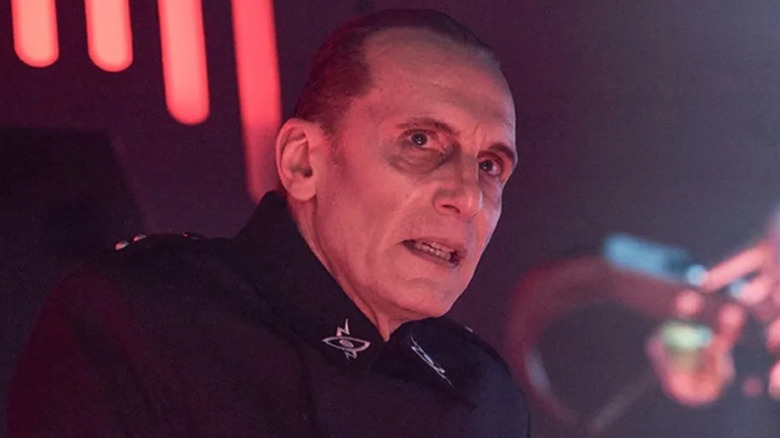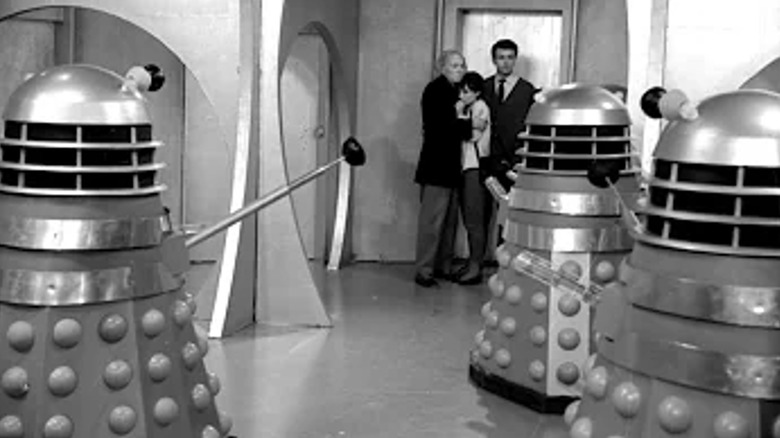That Controversial Doctor Who Davros Redesign Explained
Showrunner Russell T. Davies wants Whovians to understand that the Doctor (Ncuti Gatwa) isn't the only character on "Doctor Who" who can rock a facelift. In late 2023, the BBC revealed a total makeover for Davros (Julian Bleach) that saw the tyrannical creator of the Daleks lose his facial scarring and wheelchair. The fan response was ... mixed, to say the least, but Davies stands by the decision. During an episode of "Doctor Who: Unleashed," Davies offered his thought process and why neither he nor any of his colleagues are interested in reverting to the original design.
"We had long conversations about bringing Davros back because he's a fantastic character. Time and society and culture and taste has moved on, and there's a problem with the Davros of old in that he's a wheelchair user who is evil," said Davies. "I had problems with that, and a lot of us on the production team had problems with that — associating disability with evil — and trust me, there's a very long tradition of this. I'm not blaming people in the past at all, but the world changes, and when the world changes, 'Doctor Who' has to change as well. ... This is 2023. This is our lens."
Despite certain critical conversations occurring online, this idea is nothing new for "Doctor Who." Disability activism, LGBT+ rights, and pronoun education might be comparatively new subjects for the Doctor, but sociopolitics has been a narrative mainstay since the very beginning. No, not the beginning of the 2005 revival — the beginning of everything: 1963.
Doctor Who never slept on social issues
It's easy to look back on something that's run for a significant amount of time and remember it for only its flashiest moments. Perhaps this is why some have forgotten that the First Doctor (William Hartnell) questioned both the viability of pacifism and the inhumane realities of war. The Season 1 serial "The Daleks" introduced the Doctor's nemeses (Davros didn't enter the canon until 1975, over a decade later) and hit the ground running with those massive philosophical subjects. Also, since there were clear Aryan overtones, the arc handled racism, as well.
The Third Doctor (John Pertwee) broached the dire issue of environmentalism during the "Inferno" arc, the Fifth Doctor (Peter Davison) shined a light on big pharma during the "Caves of Adrozani" storyline, and the Seventh Doctor (Sylvester McCoy) dealt with the threat of nuclear warfare while surviving the "Battlefield" serial. More recently, the Ninth Doctor (Christopher Eccleston) acknowledged the dangers of fake news and social media in the revival's Season 1, Episode 7, "The Long Game." Sexism, depression, Indigenous peoples' rights, and suicidal ideation — "Doctor Who" explores it all.
Does the show always handle these serious topics with grace? No. These are three-dimensional, multilayered issues, and "Doctor Who" is a science-fiction series about a time traveler who considers carrots and fezes equally trendy fashion accessories. The tone shifts from silly to somber on a whim, and Russell T. Davies is but one of many showrunners who've steered the ship. For better and worse, though, "Doctor Who" always reaches for inclusivity. That's gotta count for something.

